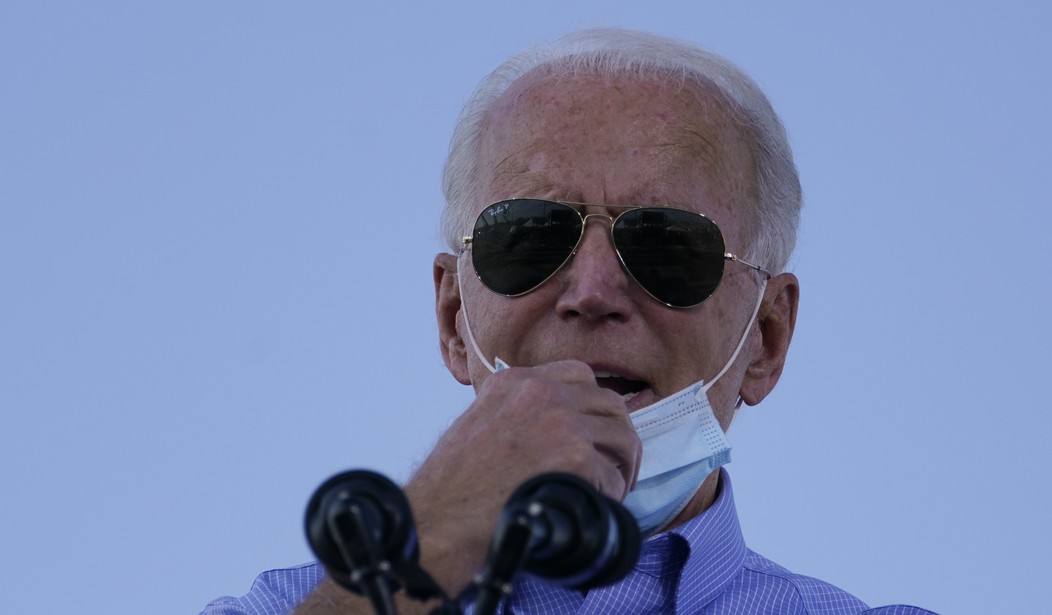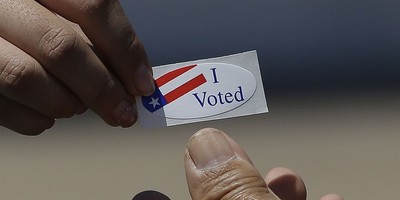It's not officially over yet, but it now appears highly likely that Joe Biden will be elected and assume office in January as the 46th President of the United States. If and when that occurs, Biden will no doubt lay out a governing agenda, parts of which may pass. But so long as Republicans retain the Senate -- a likelihood, pending the outcomes of the Georgia races (likely in a pair of runoffs) -- his party's more ambitious progressive designs will be thwarted. I actually suspect that development might come as something of a relief for Biden. My biggest concern about him winning involved Democratic overreach and institutions-busting radicalism if his party controlled all of Washington. I did not believe he could or would stand up to the hardcore and ascendant wing of his party when the chips were down. Now he has a handy and accurate excuse to do what likely comes more naturally to him after a long career in the Senate: Governing as a center-left Democrat and cutting deals.
For what it's worth, while more-or-less unified opposition to the Pelosi agenda in the House will typically be the order of the day for House Republicans (who, thanks to surprising gains this week, will have an enhanced shot at winning back the lower chamber in two years), the Senate GOP actually has some incentive to deal with Biden in an era of divided government. This includes angling to increase their chances of weathering another challenging map in 2022. A total blockade would be dysfunctional and could make it easier for Democrats to blame GOP obstructionism and appeal to voters to help them 'get things done.' I suspect Mitch McConnell will be judicious and canny about what to block and when to play ball. And I suspect he'll have a somewhat more conciliatory negotiating partner in Biden than he's had with Obama or Pelosi.
The other reality is that Biden became the heavy favorite -- who fell short of broken polling and coattails expectations, it must be noted -- not because of his policies or plans. He ran a 'prevent defense' campaign designed to alienate as few people as possible and make the race tantamount to a pure referendum on the character of Donald Trump. It ultimately worked, though the Biden campaign was certainly given a scare on election night. Part of the reason Trump was so competitive despite trailing heavily in the personal favorability category, and despite most voters disapproving of his handling of the pandemic, is that many Americans appreciate at least some of his governing outcomes as president. His approval on the performance of the economy, even in spite of the COVID-fueled crisis, consistently and substantially outpaced his overall numbers. And we made this point nearly a month ago:
Recommended
Gallup: 56% say they're better off than they were four years ago, and Trump leads Biden 49/46 on the "I agree with him on issues" metric. But Trump tumbles eight net points on the question of "presidential qualities." That's the ballgame right now. *He* is why he's trailing.
— Guy Benson (@guypbenson) October 9, 2020
In the midst of a deadly pandemic, massive economic disruption, widespread racial tensions and social unrest, with a personally-unpopular incumbent president, a clear majority of Americans said they were better off now than they were at the end of the Obama administration. That's quite significant. Another indicator that the country was not rejecting Trump's governing agenda or conservatism writ large was the support for the confirmation of Supreme Court Justice Amy Coney Barrett. Democrats threw everything they could at her nomination, making the case that the process was illegitimate. Most Americans disagreed, supporting the process playing out, as well as her installment on the Court -- and voters appear to have returned a GOP majority to the Senate. Based on multiple conversations with Republican operatives and officials connected to the Senate races, Democrats' radical threats were a boon to GOP incumbents down the election's home stretch. The prospect of a runaway Democratic government motivated voters to vote Republican, including a not-insignificant number of voters who declined to re-elect the president.
All of which is to say that if Biden's win is confirmed and certified, he will be the duly-elected President of the United States. He will be entitled to pursue his personnel and agenda as he sees fit, and Republicans should not reflexively block him. This is especially true on personnel, and should also apply to some legislative efforts. But Biden's fundamental argument to the electorate was not "vote for me in order to accomplish X Y and Z on policy." Sure, he had some issues he'd talk about, but a lot of his policy messaging was about what he wouldn't do, like raising taxes on households earning less than $400,000 or banning fracking (both of which were disputable claims at best). But the thrust of his campaign was, "I'm not Trump, who is a bad person. We need to come together and heal." If anything, that -- governing in a broadly unifying manner -- is Biden's mandate, based on the pillars of his campaign and the election results. The hard Left won't be happy about it, but it's true.
One final thought, related to Gallup's 'better off' numbers referenced above: I am convinced that Trump would have won this election under any of these three conditions: (1) If Democrats had nominated a more left-wing candidate, (2) if he were even fractionally less personally off-putting to many swing voters, (3) if Coronavirus had never happened, or if Trump's messaging and actions were more coherent and confidence-inspiring. On that final point, may I remind you that just before COVID started to inflict its wreckage in America, Trump had a 56 percent approval rating on the economy, and fully 60 percent of voters said they were better off than they were four years prior. Trump's standing on each question fell by several points over the course of the pandemic, yet he remained genuinely competitive in this race. If the US economy had been humming along at the outstanding 2019 clip, and so much of the virus-fueled tension and pain had never materialized, I think it's almost inarguable that in retrospect, the president have been close to a lock for re-election. That's no consolation to deeply disappointed Trump supporters given the outcome, but it absolutely impacts political realities moving forward -- including the GOP's outlook for the future.

























Join the conversation as a VIP Member